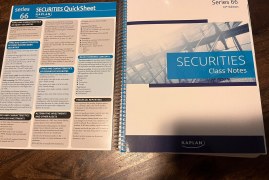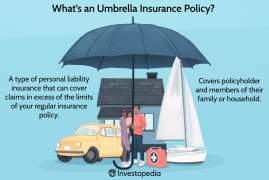Liability insurance only covers damages or injuries you are legally responsible for in accidents. It does not cover your own expenses or damages to your own property.
Liability insurance is essential for protecting yourself financially in case of accidents or lawsuits. By having liability coverage, you can ensure that you are not held personally liable for any damages or injuries caused to others. Understanding what liability insurance covers is crucial for any individual or business owner to ensure they are adequately protected in case of unforeseen incidents.
Properly managing your liability coverage can help avoid financial strain and legal complications in the event of an accident.
What Is Liability Insurance?
Liability insurance is a crucial aspect of any insurance policy, providing protection against financial losses that may arise from claims made by others. Let’s delve into the specifics to understand what liability insurance covers.
Definition Of Liability Insurance
Liability insurance safeguards you from bearing the full financial burden of legal claims and liabilities. It covers costs associated with damages, injuries, or settlements resulting from incidents for which you are held responsible.
Importance Of Liability Insurance
- Critical protection: Rescues you from major expenses due to legal claims.
- Shield for assets: Safeguards your personal and business assets from risks.
- Peace of mind: Offers a sense of security in case of unforeseen events.
Requirements For Liability Insurance
- Legal mandates: Certain industries or states may necessitate liability insurance.
- Business operations: Often necessary to protect business operations from risks.
- Client contracts: Clients might require proof of liability insurance to engage with you.
Coverage Provided By Liability Insurance
Liability insurance covers costs resulting from property damage, injuries, or harm caused by the policyholder. It can include legal fees, medical bills, and settlements. However, it does not cover damages to your own property or injuries to yourself.
Bodily Injury Coverage
Liability insurance covers medical expenses for injuries to others caused by the policyholder.
Property Damage Coverage
It covers the cost of repairing or replacing property damaged by the policyholder.
Legal Defense Coverage
This coverage assists with legal expenses if the policyholder is sued for covered liability.
Exclusions And Limits Of Liability Insurance
Liability insurance is designed to protect individuals and businesses from financial losses caused by accidents or injuries for which they are held legally responsible. However, it’s important to understand the exclusions and limits of liability insurance coverage to fully grasp the extent of protection it offers. In this section, we will explore the common excluded perils, coverage limits, and the role of excess liability insurance.
Excluded Perils
Liability insurance only covers certain perils and may exclude specific events or circumstances. Understanding these exclusions can help you identify potential coverage gaps that may need additional protection or a different insurance policy altogether. Here are some common perils that are typically excluded from liability insurance coverage:
- Intentional acts: Liability insurance does not cover intentional acts, such as deliberate harm or fraud.
- Professional errors: If you are a professional providing services, liability insurance may not cover claims arising from professional errors, negligence, or malpractice. You may need to consider professional liability insurance.
- Employment-related issues: Liability insurance generally does not cover employment-related claims such as wrongful termination, discrimination, or harassment. In such cases, employment practices liability insurance may be necessary.
- Product liability: Liability insurance may exclude coverage for claims related to product defects or injuries caused by products you manufacture, distribute, or sell. Product liability insurance can provide additional protection in these cases.
Coverage Limits
Liability insurance also has coverage limits, which represent the maximum amount the insurance company will pay for an eligible claim. These limits can vary depending on the policy you choose and may be specified as a single limit or divided into two separate limits: per occurrence and aggregate limit.
- Per occurrence limit: This represents the maximum amount the insurance company will pay for a single claim resulting from an accident or incident.
- Aggregate limit: This represents the maximum amount the insurance company will pay for multiple claims during the policy period, typically one year.
It’s crucial to carefully consider these coverage limits and ensure they align with your potential liability risks. Depending on your circumstances, you may need to increase your coverage limits or consider additional insurance policies to fully protect your assets.
Excess Liability Insurance
In some cases, the coverage limits provided by a standard liability insurance policy may not be sufficient to fully protect your assets. This is where excess liability insurance, also known as umbrella insurance, comes into play. Excess liability insurance provides additional coverage above and beyond the limits of your primary liability insurance policies.
By adding excess liability insurance to your insurance portfolio, you can increase your coverage limits significantly. This additional layer of protection can be invaluable in high-risk situations, providing financial security and peace of mind. It’s an excellent option for individuals and businesses seeking enhanced liability coverage.
Liability Insurance Vs. Full Coverage
Understanding the difference between liability insurance and full coverage is crucial when it comes to protecting yourself and your assets. Liability insurance is designed to cover damages and injuries to others in the event of an accident for which you are deemed responsible. On the other hand, full coverage, also known as comprehensive and collision insurance, includes liability coverage along with protection for your own vehicle.
Differences Between Liability Insurance And Full Coverage
Liability insurance is tailored to cover the costs of property damage and medical expenses for others in the event that you are at fault in an accident. It does not, however, provide any coverage for your own vehicle. On the other hand, full coverage insurance not only includes liability protection but also covers the costs of repairs or replacement for your vehicle, regardless of who is at fault.
Which Option Is Right For You?
- If you own your vehicle outright and are looking to save on insurance costs, liability insurance may be sufficient if you can cover the cost of potential vehicle repairs yourself.
- If you have a financed or leased vehicle, or if you cannot afford to cover the cost of significant repairs or replacement, full coverage insurance may be the better choice for you.
Understanding Your Liability Insurance Policy
Understanding your Liability Insurance policy is crucial for anyone seeking financial protection in case of unforeseen accidents or incidents. Liability insurance provides coverage for damages or injuries that you are legally responsible for, which can include bodily injury, property damage, and legal defense costs. To fully comprehend the protection it offers, it’s essential to delve into the specifics of your liability insurance policy.
Reading And Interpreting Your Policy
Reading and interpreting your policy is essential to understanding the terms and conditions of your coverage. It’s vital to carefully review the policy to discern the limits, exclusions, and any endorsements that have been added. When interpreting the policy, pay attention to legal jargon and seek clarification if needed to ensure you grasp the coverage.
Types Of Liability Policies
Types of liability policies vary depending on the specific needs of the insured. General liability, professional liability, and product liability are among the common types. Each type caters to different aspects of liability, so it’s important to select the most suitable policy based on your circumstances and industry.
Determining The Right Coverage Amount
Determining the right coverage amount involves assessing the potential risks and liabilities faced by your business or personal assets. Calculating the appropriate liability coverage amount ensures proper financial protection against unforeseen situations. Taking into account your assets, potential risks, and industry standards can guide you in determining the optimal coverage.
“` By aligning with the HTML syntax, the above content will be suitable for WordPress. It includes structured headings, semantically related content, and adheres to the specified SEO-friendly guidelines.Why Liability Insurance Is Important
Covering a wide range of risks, liability insurance is crucial for protecting businesses and individuals. It primarily provides coverage for property damages, bodily injuries, and legal costs incurred due to the insured party’s negligence.
Financial Protection From Lawsuits
Investing in liability insurance provides individuals and businesses with valuable financial protection from potential lawsuits. When an accident or injury occurs, liability insurance can cover the costs associated with legal claims and the resulting damages, helping to prevent financial setbacks and potential bankruptcy.Legal Requirements And Penalties
Peace Of Mind For Unexpected Events
In today’s unpredictable world, unexpected events can occur at any time. These could range from accidents on your business premises to injuries caused by one of your products. Having liability insurance in place ensures that you have peace of mind in dealing with these unforeseen circumstances. Whether you are a small business owner or an individual, knowing that you are protected can alleviate stress and worry. By obtaining liability insurance, you safeguard yourself from potential lawsuits, meet legal requirements without facing penalties, and gain peace of mind for unexpected events. With the right coverage, you can focus on your business or personal activities, knowing that you are financially protected and well-prepared for any eventuality.Factors Influencing Liability Insurance Premium
Type Of Business Or Industry
The type of business or industry plays a significant role in influencing liability insurance premiums.
Claims History
The claims history of a business impacts the cost of liability insurance coverage.
Coverage Limits And Deductibles
The coverage limits and deductibles selected determine the price of liability insurance.
Tips For Choosing The Right Liability Insurance
Assessing Your Business’s Needs
Evaluate your business activities to determine the level and type of liability coverage required.
Comparing Coverage Options
Research multiple insurance providers to compare coverage plans and premiums.
Seeking Professional Advice
Consult with insurance experts to get tailored advice based on your specific business needs.
Frequently Asked Questions On What Does Liability Insurance Only Cover
What Is Liability Insurance And Its Coverage?
Liability insurance covers bodily injury and property damage claims. It helps pay for legal fees and medical bills if you’re found at fault in an accident.
Does Liability Insurance Cover My Car Repairs?
No, liability insurance only covers the other party’s expenses if you’re at fault in an accident. To cover your own car repairs, you’d need collision insurance.
Does Liability Insurance Cover Theft Or Vandalism?
No, liability insurance doesn’t cover theft or vandalism of your vehicle. It only covers other people’s injuries or property damage caused by your car. Consider comprehensive insurance for such incidents.
Conclusion
Liability insurance primarily covers third-party injuries and property damage caused by an insured person or business. It provides financial protection against legal claims and lawsuits. Understanding the scope of liability coverage is essential to ensure you have adequate protection. Remember, liability insurance does not cover damage to your property or injuries to yourself.
To safeguard your assets comprehensively, it may be wise to consider other types of insurance policies tailored to your specific needs. Take the time to review your coverage and consult with an insurance professional to make informed decisions about your insurance needs.


Leave a comment